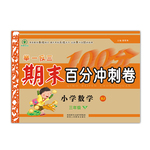题目内容
阅读下面的短文,然后按照要求写一篇120词左右的英语短文。
For long, there was a little boy with a bad temper. His father gave him a bag of nails and told him that every time he lost his temper, he would hammer a nail in the back fence.
The first day the boy had driven 37 nails into the fence. Then it gradually dwindled(逐渐减少) down. He discovered it was easier to hold his temper than to drive those nails into the fence. Finally the day came when the boy didn't lose his temper at all.
He told his father about it and the father suggested that the boy now pull out one nail for each day when he was able to hold his temper. The days passed and the young boy was finally able to tell his father that all the nails were gone. The father took his son by the hand and led him to the fence. He said, “You have done well, my son, but look at the holes in the fence. The fence will never be the same. When you say things in anger, they leave a scar just like this one. You can put a knife in a man and draw it out. It won't matter how many times you say I'm sorry, the wound is still there. A verbal (言语的) wound is as bad as a physical one. Friends are a very rare jewel, indeed. They make you smile and encourage you to succeed. They lend an ear, they share a word of praise, and they always want to open their hearts to us. Show your friends how much you care.”
【写作内容】
(1)用约30个词概括上文的主要内容。
(2)用约90个词发表你的看法,内容包括:
①愤怒的负面影响;
②通过你或你身边的例子说明愤怒的负面影响;
③在你愤怒的时候你将怎么控制自己的情绪。
【写作要求】
(1)写作时,可以参考阅读材料,但不得直接引用原文;
(2)作文中不得出现真实姓名和学校名称;
(3)不必写标题
__________________________________________________________________________________
__________________________________________________________________________________
__________________________________________________________________________________
 举一反三期末百分冲刺卷系列答案
举一反三期末百分冲刺卷系列答案
